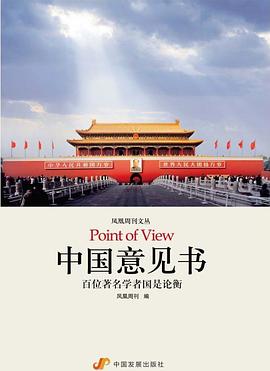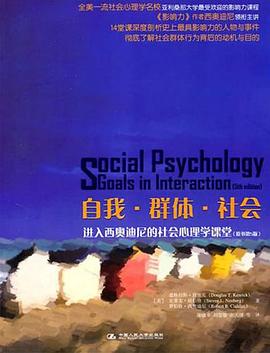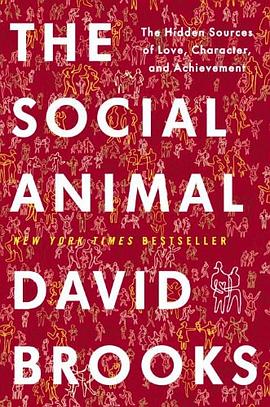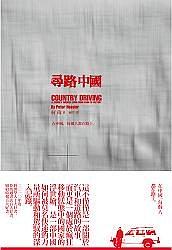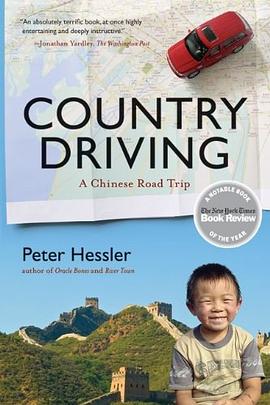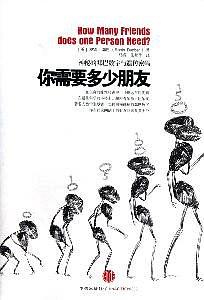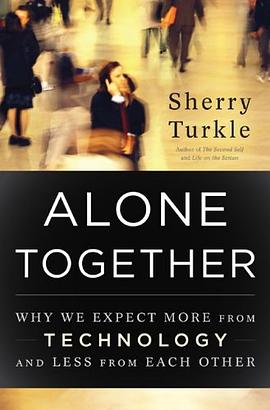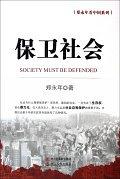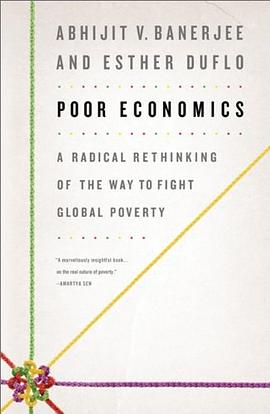

具体描述
Winner of the 2011 Financial Times/Goldman Sachs Best Business Book of the Year Award
Billions of government dollars, and thousands of charitable organizations and NGOs, are dedicated to helping the world's poor. But much of their work is based on assumptions that are untested generalizations at best, harmful misperceptions at worst.
Abhijit Banerjee and Esther Duflo have pioneered the use of randomized control trials in development economics. Work based on these principles, supervised by the Poverty Action Lab, is being carried out in dozens of countries. Drawing on this and their 15 years of research from Chile to India, Kenya to Indonesia, they have identified wholly new aspects of the behavior of poor people, their needs, and the way that aid or financial investment can affect their lives. Their work defies certain presumptions: that microfinance is a cure-all, that schooling equals learning, that poverty at the level of 99 cents a day is just a more extreme version of the experience any of us have when our income falls uncomfortably low.
This important book illuminates how the poor live, and offers all of us an opportunity to think of a world beyond poverty.
Learn more at www.pooreconomics.com
作者简介
Abhijit Vinayak Banerjee is the Ford Foundation International Professor of Economics at MIT. He is the recipient of many honors and awards, including most recently the inaugural Infosys Prize in 2009, and has been an honorary advisor to many organizations including the World Bank and the Government of India.
Esther Duflo is the Abdul Latif Jameel Professor of Poverty Alleviation and Development Economics at MIT. She is a recipient of the MacArthur “genius” award (2009) and the John Bates Clark medal awarded annually to the best American economist under forty (2012). In 2003, Banerjee and Duflo cofounded the Abdul Latif Jameel Poverty Action Lab (J-PAL), which they continue to direct.
目录信息
1 Think Again, Again 1
Part I Private Lives
2 A Billion Hungry People? 19
3 Low-Hanging Fruit for Better (Global) Health? 41
4 Top of the Class 71
5 PakSudarno's Big Family 103
Part II Institutions
6 Barefoot Hedge-Fund Managers 133
7 The Men from Kabul and the Eunuchs of India: The (Not So) Simple Economics of Lending to the Poor 157
8 Saving Brick by Brick 183
9 Reluctant Entrepreneurs 205
10 Policies, Politics 235
In Place of a Sweeping Conclusion 267
Acknowledgments 275
Notes 277
Index 295
· · · · · · (收起)
读后感
世界卫生组织有个标准,每天收入低于99美分的就是贫困人群,按最近汇率是人民币6块左右,月收入180元以下的人。吃不饱(就是吃完饭还想吃)应该是他们经常的感受。除了克制一下我们自己不必要的欲望之外,还应该寻找系统解决穷困的方法。世界上已经有很多人在为此努力了,本书...
评分穷人经济学与变革政治学 范仄 说明:此文发于《21世纪经济报道》http://www.21cbh.com/HTML/2013-6-1/1NMTM5XzY5NzY1Nw.html。由于篇幅有限,很多地方点到为止,过一阵子再推出扩展板。 核心提示:穷人很难,理解和消除贫穷似乎更难。 我们都是“晋惠帝” 中国古代...
评分我是个很有远见的人,一向为生活做长远打算。为防止日后流落街头,我读了《贫穷的本质》,想知道贫穷到底是怎么一回事。即便以后我穷得只能捡垃圾吃,也知道自己出了什么问题。这本书是美国麻省理工大学两位经济学教授阿比吉特·班纳吉和埃斯特·迪弗洛花费十五年时间,在五大...
评分穷人经济学与变革政治学 范仄 说明:此文发于《21世纪经济报道》http://www.21cbh.com/HTML/2013-6-1/1NMTM5XzY5NzY1Nw.html。由于篇幅有限,很多地方点到为止,过一阵子再推出扩展板。 核心提示:穷人很难,理解和消除贫穷似乎更难。 我们都是“晋惠帝” 中国古代...
评分Poor Economics 的标题双关了本书的要点:首先,这是一本关于穷人(the poor)的经济学著作:关于他们的约束、困境、动机以及选择;其次,这是一本有关贫穷的经济学著作:贫困的原因,以及我们如何对抗贫困。 作者质疑了大众或者说学者与政策制定者对待“穷人”脱离实际的刻板...
用户评价
《Poor Economics》这本书,就像一扇窗,让我得以窥见一个我既熟悉又陌生的世界。熟悉,是因为贫困是人类社会普遍存在的现象;陌生,是因为我从未如此深入地理解过它的根源和运作机制。作者以一种非凡的洞察力,揭示了贫困背后错综复杂的因素,它们相互交织,形成一个难以打破的恶性循环。我被书中关于“贫困与健康”的联系深深吸引,那些因缺乏基本卫生条件而导致的疾病,因无法负担医疗费用而加剧的痛苦,无不让我感到揪心。作者并没有停留在描述这些悲剧,而是积极地探讨如何通过简单的干预措施来改善健康状况,例如推广洗手习惯、提供蚊帐等。这些看似微小的举动,却可能在根本上改变一个人的命运。这本书让我认识到,解决贫困问题,需要一种“小切口、大智慧”的思维方式。与其寄希望于宏大的经济改革,不如从这些具体、可行的层面着手,积少成多,最终实现质的飞跃。它让我对“发展”这个词有了更深刻的理解,不再是单纯的经济增长,而是包括健康、教育、尊严等在内的全方位进步。这本书对我而言,是一次关于如何成为一个更有责任感、更有同情心的人的教育。
评分《Poor Economics》这本书,像一位经验丰富的智者,耐心地向我讲述着那些关于生存的智慧。作者并非高高在上地宣讲理论,而是以一种平等、尊重的姿态,深入到贫困人群的生活肌理之中。书中那些充满细节的描述,让我得以窥见那些我们习以为常的“理所当然”,在贫困的背景下,是多么的奢侈。我被书中对“贫困的代际传递”的深刻剖析所打动,那些代代相传的贫困,并非仅仅是财富的缺失,更是机会的剥夺、知识的隔阂、以及希望的熄灭。作者通过一个个鲜活的案例,展现了贫困如何像一张无形的网,将个体牢牢地束缚住。我尤其赞赏书中对“信息不对称”在贫困问题中的作用的分析。在贫困地区,获取准确的信息,无论是关于健康、教育,还是市场机会,都可能是一件极其困难的事情。而错误的或不完整的信息,往往会导致人们做出不利于自身的决定。这本书让我明白,真正的援助,不仅仅是物质上的给予,更是知识和信息的传递,是 empowering。它让我重新审视了“赋权”的真正含义,不再是简单的给予,而是帮助人们获得自主决策的能力。每一次阅读,都像一次深入的交流,我从中获得的不仅仅是知识,更是一种对生命深刻的理解和敬畏。
评分《Poor Economics》这本书,以其独特的视角和深刻的见解,彻底改变了我对贫困的认知。作者并没有采用空洞的宏大叙事,而是将读者带入到贫困人群的日常生活中,去感受他们的喜怒哀乐,去理解他们的挣扎与无奈。我被书中关于“基础设施建设与贫困”的联系深深吸引。落后的基础设施,例如糟糕的道路、不稳定的电力供应、缺乏可靠的通讯网络,都可能成为阻碍贫困地区发展的巨大障碍。作者通过生动的案例,展现了这些基础设施的缺失是如何导致生产效率低下、市场难以拓展、以及基本公共服务难以普及。这本书让我认识到,解决贫困,需要政府和社会共同努力,加大对基础设施建设的投入,为贫困地区的发展奠定坚实的基础。它让我思考,我们应该如何以更加务实和创新的方式,来解决这些发展中的瓶颈,如何让技术进步的成果,真正惠及那些最需要帮助的人。这本书让我对“发展”有了更深层次的理解,它不再仅仅是经济增长的指标,而是关乎每一个个体的生活质量和尊严。
评分这本书的封面设计,简洁却极具冲击力,深邃的蓝色背景上,一行简洁有力的白色字体,直截了当地点明了书名。初次翻阅,我便被其独特的叙事方式所吸引。作者并非那种枯燥的学院派理论家,而是以一种近乎散文的笔触,将艰深复杂的经济学原理,巧妙地融入到一个个鲜活生动的故事之中。那些关于发展中国家贫困问题的案例,无一不触动人心。读着那些为了生存而付出的艰辛努力,那些在绝境中闪烁的人性光辉,我仿佛亲身经历了他们的喜怒哀乐。书中对贫困的定义,也不仅仅局限于物质的匮乏,而是深入到了权利、尊严、选择权等更深层次的维度。作者用大量的实证数据和田野调查来支撑自己的观点,让人不得不信服。更让我惊喜的是,这本书并非只停留在揭示问题,而是积极地探讨解决方案。那些充满智慧和创意的干预措施,比如提供微型贷款、改善教育环境、推广健康卫生习惯等等,都让人看到了改善贫困现状的希望。每一次阅读,都能有新的感悟,每一次合上书本,都会对这个世界产生更深刻的思考。它挑战了我过去对贫困的刻板印象,让我认识到解决贫困问题并非易事,需要系统性的思维和长期的努力。这本书无疑是我近期读过的最引人入胜、也最具启发性的著作之一,它让我对人性的复杂性和社会的进步有了更深的理解。
评分《Poor Economics》这本书,与其说是一本经济学著作,倒不如说是一场关于人类生存困境的深刻对话。作者用一种极其接地气的方式,将我们这些生活在相对富裕环境中的读者,带入到那些我们可能从未设身处地体验过的世界。那些关于孟加拉国妇女如何通过小额信贷改变命运的故事,那些关于印度儿童为何难以接受教育的无奈,每一个细节都像一记重锤,敲打在我的心头。我被书中描绘的贫困的“陷阱”所震撼,那些看似微不足道的障碍,却足以将一个人或一个家庭永远地困在贫困的泥沼中。作者并没有回避那些令人不安的事实,而是直面它们,用一种冷静而充满同情的笔触,剖析了贫困的根源。这本书让我意识到,解决贫困问题,绝非仅仅是提供金钱援助那么简单,它需要对人类行为、社会结构、文化习俗等方方面面进行深入的理解。书中对“选择的悖论”的探讨,尤其让我印象深刻。当人们拥有太多的选择时,反而会因为信息过载和决策成本过高而做出 suboptimal 的选择。这在贫困人群中尤为突出,他们需要在有限的资源下做出无数艰难的决定,稍有不慎就可能跌入更深的困境。这本书让我开始反思,我们作为旁观者,应该如何更有效地伸出援手,如何避免好心办坏事。它是一部充满智慧的作品,更是一部充满人文关怀的杰作。
评分《Poor Economics》这本书,是我近期阅读中,最让我感到“醍醐灌顶”的一部作品。作者以一种令人信服的严谨和深刻,剖析了贫困的复杂性,让我认识到,我们过去对于贫困的理解,可能过于片面和简单化了。我被书中关于“失业与贫困”的联系深深吸引。在贫困地区,失业不仅仅意味着收入的损失,更可能意味着尊严的丧失、家庭的破裂,甚至是社会地位的坠落。作者通过对不同国家和地区的案例分析,揭示了失业的原因是多方面的,包括经济结构调整、技术进步、以及全球化带来的挑战。这本书让我认识到,解决贫困,需要多管齐下,既要创造就业机会,也要提供技能培训,更要建立完善的社会保障体系,为失业人群提供及时的支持。它让我思考,我们应该如何更好地理解和应对全球化带来的挑战,如何确保经济发展的成果能够惠及所有人,而不是加剧贫富差距。这本书的深度和广度,让我对“贫困”二字有了全新的认识,也对“发展”的真正内涵有了更深刻的理解。
评分当我拿起《Poor Economics》这本书时,我期待的是一份关于全球贫困问题的严谨分析,但实际得到的,远比我预期的要丰富得多。作者以一种令人惊叹的叙事能力,将那些抽象的经济学理论,化作了一幅幅生动的画面,让我仿佛置身于那些贫困的社区,亲眼见证着人们的挣扎与希望。书中对于“行为经济学”在贫困问题上的应用,给我带来了极大的启发。我过去总是从宏观的角度去理解贫困,认为它主要是由经济制度、政策法规等大环境造成的。但这本书让我看到,微观层面上,个体决策、心理偏差,甚至是一些日常的习惯,都可能成为贫困循环的关键环节。例如,书中关于“延迟满足”困难的讨论,让我深刻理解了为什么一些贫困人群即使有机会改善自身状况,也可能因为眼前的诱惑而选择放弃长远利益。这种洞察力,是那些只关注宏观经济指标的理论所无法提供的。此外,作者对“援助的有效性”的探讨,也让我警醒。我们常常出于好意去帮助他人,但如果缺乏对当地情况的深入了解和对人性弱点的充分认识,我们的善意反而可能适得其反。这本书挑战了我许多固有的观念,让我认识到,解决贫困是一个复杂而精细的工程,需要我们以更加谦逊和审慎的态度去面对。它不仅是一次知识的获取,更是一次心灵的洗礼。
评分《Poor Economics》这本书,给我带来了前所未有的阅读体验。作者的叙述方式极其引人入胜,仿佛一位经验丰富的旅行家,带着我深入到那些我们通常只能在新闻报道中看到的贫困地区。他没有回避贫困带来的痛苦和绝望,但同时,他也捕捉到了在最艰难的环境下,人性的坚韧和闪光点。我被书中对“教育与贫困”之间关系的探讨所吸引。为什么即使有学校,很多贫困家庭的孩子依然无法获得良好的教育?是学费太高?是课程不合适?还是有更深层次的原因?作者通过大量的田野调查,揭示了其中的复杂性,例如家庭的经济压力、对教育回报的怀疑、甚至是教育系统本身的效率低下。这本书让我认识到,解决贫困,教育是关键,但如何让教育真正惠及贫困人群,却是一个需要精心设计的难题。它挑战了我过去对“教育万能论”的简单理解,让我看到,教育的成功,需要与其他社会经济因素协同作用。读这本书,就像参加了一场跨越国界的课堂,我不仅学到了知识,更重要的是,我开始以一种全新的视角去审视这个世界,去理解那些与我生活在不同境遇下的人们。
评分《Poor Economics》这本书,其价值远远超出了我对一本经济学读物的预期。作者以一种近乎诗意的笔触,将那些冰冷的数字和抽象的理论,注入了鲜活的生命力。他深入到贫困人群的内心世界,去理解他们的焦虑、他们的希望,以及他们为了生存所做出的种种努力。我被书中关于“储蓄与借贷”的分析所吸引。在贫困的情况下,储蓄几乎是不可能的,而借贷则往往伴随着高昂的利息和风险。这种金融上的困境,使得贫困人群很难积累财富,也难以应对突发的危机。作者通过一个个生动的故事,展现了微型金融在改善这一状况方面所起到的作用,但同时也警示了其局限性。这本书让我认识到,解决贫困,需要提供多样化的金融服务,并辅以相应的金融教育,帮助贫困人群建立健康的金融习惯。它让我思考,我们应该如何构建一个更加公平和包容的金融体系,让那些最需要帮助的人,也能享受到金融的阳光。这本书不仅仅是关于贫困,更是关于人性,关于如何在困境中寻找出路,关于我们如何共同构建一个更加美好的未来。
评分《Poor Economics》这本书,给我带来了前所未有的震撼和启迪。作者以一种极为罕见的勇气和洞察力,深入到那些最贫困的角落,去倾听那些被忽视的声音,去理解那些被遗忘的故事。我被书中关于“腐败与贫困”的联系深深吸引。腐败,就像一个无形的黑洞,吞噬着本可以用于改善民生的资源,加剧了贫富差距,阻碍了社会进步。作者通过具体的案例,揭示了腐败是如何在贫困地区蔓延,以及它对个体和整个社会造成的巨大伤害。这本书让我认识到,解决贫困,不仅要关注经济发展,更要关注政治清明和社会公平。一个健康的社会,必须能够有效遏制腐败,确保资源的公平分配,为所有人提供公平的竞争机会。它让我思考,我们应该如何在全球范围内共同打击腐败,如何建立更加透明和负责任的治理体系,让每一个人的努力都能得到应有的回报。这本书的出现,无疑是对那些沉默的苦难的呐喊,也是对那些身处困境的人们的希望的指引。
评分A better piece as a life-style reading than most life-style books themselves - think of your daily choices as investments.
评分比之前看的Dead Aid更全面,对援助悲观主义者和乐观主义者的两类主张都有回应。作者的风格特别平实,态度很务实,反复强调之前的学者没有数据说个毛线,极端案例不能作为大众的代表。全书主要是帮助理解穷人做决策的逻辑,表示穷人的决策虽然可能不正确但都是理性的决策。要全面理解穷人的生活状态,把援助要送到刀口上才有用。然后我最近越来越觉得UN好假大空啊怎么办。
评分非常清晰,非常有趣~主要研究方法是RCT。
评分比之前看的Dead Aid更全面,对援助悲观主义者和乐观主义者的两类主张都有回应。作者的风格特别平实,态度很务实,反复强调之前的学者没有数据说个毛线,极端案例不能作为大众的代表。全书主要是帮助理解穷人做决策的逻辑,表示穷人的决策虽然可能不正确但都是理性的决策。要全面理解穷人的生活状态,把援助要送到刀口上才有用。然后我最近越来越觉得UN好假大空啊怎么办。
评分发人深省,穷人脱离贫困线需要与周遭事物进行漫长地斗争。这其中既有主观意识能动性地缺乏,又有制度的不平衡。而我们能所作的,是用极度的耐心与细心,切身实际的制定法规,与时间,与人的意识糅合。脱贫致富,想来这件事还是需从长计议啊!
相关图书
本站所有内容均为互联网搜索引擎提供的公开搜索信息,本站不存储任何数据与内容,任何内容与数据均与本站无关,如有需要请联系相关搜索引擎包括但不限于百度,google,bing,sogou 等
© 2026 book.quotespace.org All Rights Reserved. 小美书屋 版权所有


